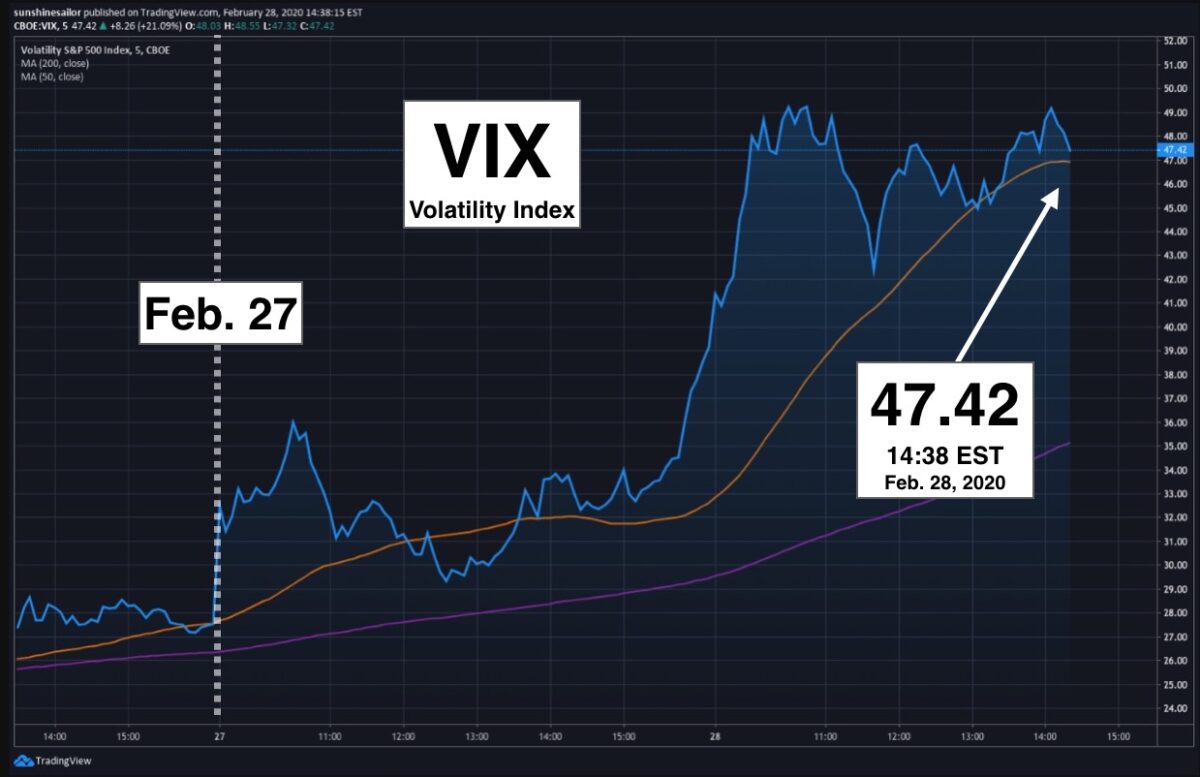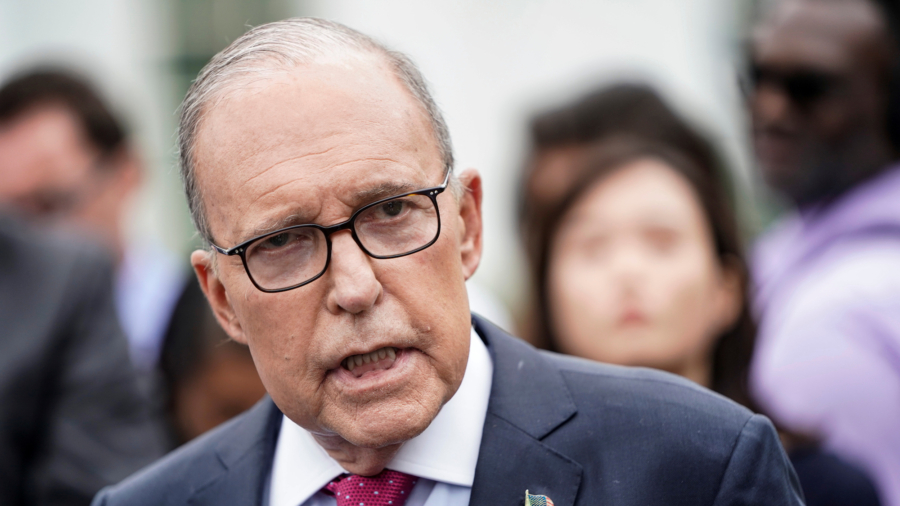Top White House economic adviser Larry Kudlow said Friday that global markets “have gone too far” in their stock selloffs amid fears the coronavirus epidemic could spiral into a pandemic.
“The market’s the market,” said Kudlow, responding to a reporter’s question at a White House briefing whether he believed that investors were “overreacting.”
“My reading of the numbers that we have at hand—and I acknowledge this could change, I acknowledge the situation could deteriorate, I acknowledge the risks—but given what we know factually, it looks to me like the market has gone too far,” the National Economic Council director said, adding, “I’ve seen this before and it could come back very rapidly.”
Wall Street continued its downward plunge Friday, with all three key indexes—the Dow Jones, Nasdaq, and S&P 500—falling deeper into correction territory.
Haven assets like bonds, meanwhile, saw major capital inflows Friday, with the 10-year U.S. Treasury note yield dropping over 10 percent in intraday trading.
Kudlow told reporters that the U.S. economy has strong fundamentals and that he believes the stock market drop was a temporary correction.
“We just think the economy is sound, so therefore I just don’t think that this short-term stock-market plunge is going to have any long-term effect,” Kudlow told reporters.
‘Sharp Correction’
Commenting on the depth of this week’s equities plunge, senior financial analyst Nick Reece told The Epoch Times in an emailed statement, “I would say this is at the very least a sharp correction.”
A correction in equities is defined as a drop greater than 10 percent off a stock market’s recent high. On Thursday, the Dow, Nasdaq, and S&P 500 all closed over 12 percent below their latest all-time highs.
“Some indicators I’m tracking are looking very similar to selling climaxes from prior corrections,” Reece said, adding that while there are “no guarantees that we’ve seen the worst in the markets yet,” he said the data “looks historically inconsistent with the start of a major bear market.”
But things could always be different this time, Reece added.
“There are a lot of legitimate concerns and unknowns with regards to the impact of the virus. This move is a good reminder that markets don’t follow a normal distribution, fat tails are a feature of markets,” he said.
Allen Sukholitsky, chief macro strategist at Xallarap Advisory, told The Epoch Times in an emailed statement that while this correction arrived sooner than markets expected, “its magnitude is within historical norms.”
“Regarding the economic outlook, we first became concerned several months ago, then became more concerned as COVID-19 spread globally, and are now even more concerned,” he wrote.
The Wall Street “fear gauge,” or the VIX index, which is a measure of the market’s expectation of stock market volatility over the next 30 days, spiked Friday to levels not seen since the 2008 financial crisis. The volatility gauge climbed to over 49, while 30 is widely seen as a boundary beyond which significant market uncertainty and investor fear prevail.

‘Rapid-fire, Unprecedented Actions’
President Donald Trump and his administration have been under pressure this week amid growing unease in the markets as the United States reported its first possible community-spread case of the disease, which has expanded to numerous countries beyond China where it first emerged.
Kudlow told the Fox Business Network that the White House would continue to work with Congress to take any necessary actions.
“In America, we’ve got an incredibly strong public health system,” Kudlow told reporters at the White House on Friday, adding, “the President has taken rapid-fire, unprecedented actions to help protect in the event of an emergency or further deterioration.”
‘People Should Not Overreact’
Besides sending markets down for the fifth straight day, investor panic over the outbreak sparked a rush to safe assets, like U.S. Treasurys, with the 10-year note yield hitting a new record low Friday. Bond yields move in the opposite direction to prices, with falling yields a sign of growing investor interest.
“Investors are impounding worst-case scenarios into their valuations,” said Robert Johnson, professor of Finance at Heider College of Business, Creighton University.
“It is ironic that investors are fleeing equities into the overvalued Treasury market,” he told The Epoch Times by email. “For example, investors are selling AT&T stock yielding nearly 6 percent for Treasury Bills yielding 1 percent.”
In his remarks, Kudlow gave markets their due, but advised calm.
“I’m not saying that the market’s wrong,” Kudlow said. “It is what it is. You’ve got millions of people trading all around the world. But I just think everybody, whether you’re an investor or whether you’re an ordinary main street person, people should not overreact. That’s the important thing, not to overreact.”
From The Epoch Times

